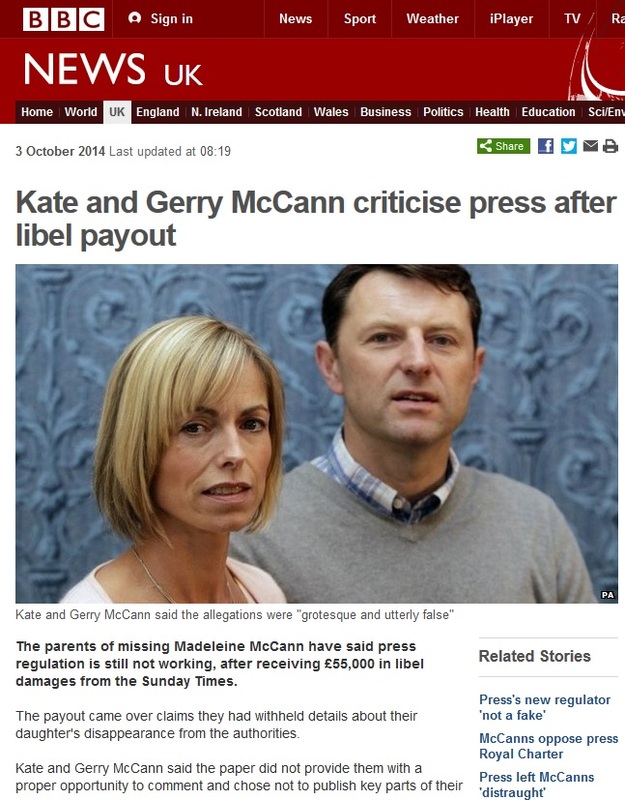When compulsory redundancy came knocking at the start of 2012, I had spent almost a decade as chief revise editor at the Times. During those years, I did a lot of hands-on subbing/copy editing, proofreading, tinkering with the style guide, dishing out advice - some of it solicited - and sending "encouraging" global emails to colleagues about producing a better-written newspaper.
I shared a small office most days with a fellow pedant or two, and between us we gave the pages a final polish, and occasionally saved a bylined writer's sorry tale/tail. And our daily guest was the duty night lawyer, one of a roster of outside barristers and solicitors hired by the in-house legal department for their expertise in media law.
They would read the pages as we did during the afternoon and into the evening, and between us we aimed to ensure as sparkling a read as possible that would not attract the attentions of Sue, Grabbit and Runne.
A stock-in-trade of the in-house media lawyer is preventing a broadcaster or publisher being sued for defamation, defined by the Oxford dictionary as "the action of damaging the good reputation of someone; slander or libel". Slander refers to anything spoken, libel to anything written.
There now follows a lawyerly caveat. Despite my years of witnessing the nightly practice of newspaper law, it has plenty of mysterious nooks and crannies, so everything I note beyond here is subject to generalisation and simplification.
However... for newspapers, a key way to prevent being sued for libel is to print what is true and to have credible proof, which can be presented in court if necessary, that what is printed is true. The onus in English defamation law is on the publisher, not the complainant.
(Thus Robert Maxwell successfully sued Private Eye for its suggestion that he was, er, borrowing and redirecting, aka stealing, from the Mirror Group Newspapers pension fund. The allegation was true, but Lord Gnome's organ has insufficient evidence at the time.)
Additionally, even if something is defamatory, a night lawyer will dispense on-the-fly opinion about the relative risk of legal action being taken. Traditionally, for example, politicians have been less likely to sue for defamation than showbiz types.
And so to the McCanns. They are parents whose child went missing on a beach holiday in Portugal. The couple came in for criticism and judgement at the time of Madeleine's disappearance from people who said, in effect: "If we were abroad in a child-friendly country, we would not leave our children in an apartment on their own. We would either stay with them or bring them to dinner with us, and really nobody would mind if they fell asleep at the table."
The McCanns are also doctors. I do not know them personally, so my view of the couple comes through the prism of the media. In my opinion, they seem somewhat cold and distant. But to make allowances, the way in which they have come to the public's attention is exceptionally unusual, and none of us knows how we would appear in similar circumstances.
Clearly the McCanns are entitled to the same fair scrutiny that anybody else is. They have instructed lawyers on several occasions regarding defamatory articles, and have won substantial damages. The McCanns have become prominent in the Hacked Off campaign for a post-Leveson settlement that increases press regulation. I understand their position, but fundamentally disagree with it.
A statistic I am fond of repeating relates to the classic textbook McNae's Essential Law for Journalists. It is almost 500 pages. We have an abundance of laws controlling the press, and by extension what is written on Twitter, Facebook and the rest of social media.
I am entirely in the Ian Hislop camp on the state of press regulation, and state press regulation. As the Private Eye editor has said, we do not need any more media regulation (as advocated by Hacked Off and the McCanns). What we do need is the huge corpus of current media law to be properly policed, cases to be brought appropriately to the courts, and punishments to fit any proven offences.
If I choose to break the law for journalistic reasons, I would not deserve or expect special treatment from the law, and would have to be prepared for the consequences.
There is a fine balance to be struck in defending freedom of speech on the one hand and individual rights on the other. The McCanns and the wider Hacked Off movement seem oddly fond of citing cases in which the law appears to deal adequately with press shortcomings as evidence that we require yet more press regulation.


 RSS Feed
RSS Feed


